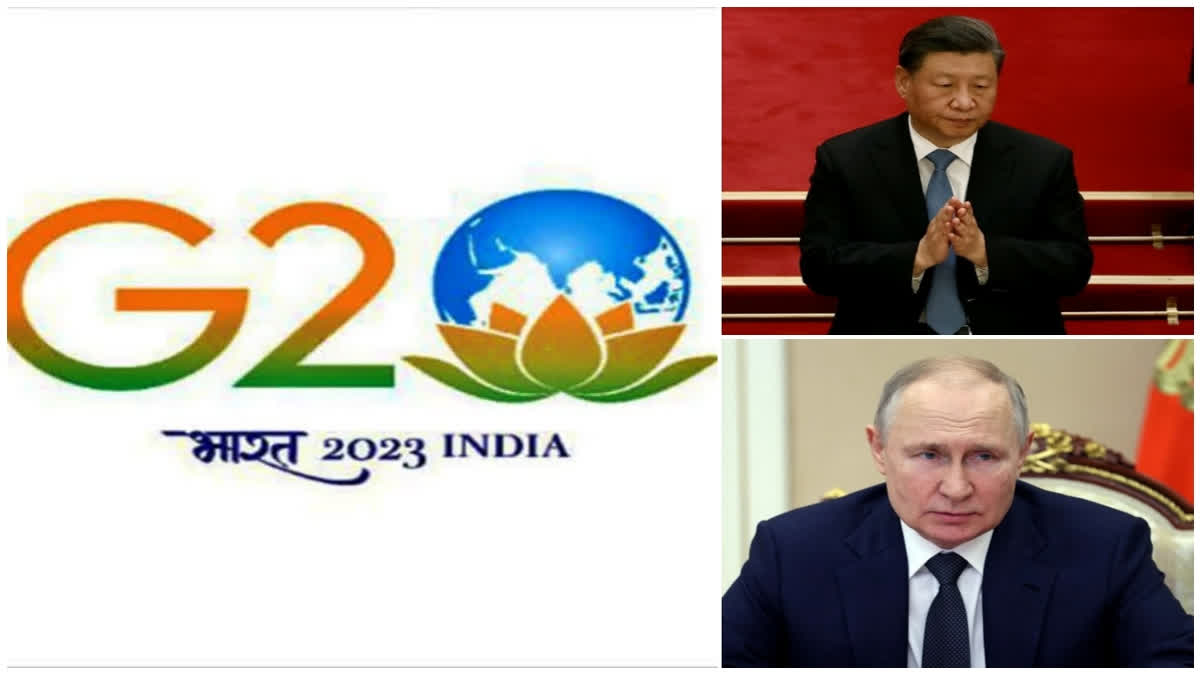New Delhi: Leaders of the world’s top twenty economies, both industrialized and developing nations, are gathering here this weekend to find solutions to the world’s most pressing issues which include the global economy, the Russia-Ukraine war and climate change among others. However, the absence of Xi Jinping, the paramount leader of the world’s second-largest economy China, along with Russian President Vladimir Putin has somewhat dampened the spirit as it may pose a challenge in forging a consensus in the absence of the supreme leaders of these two countries.
Other prominent world leaders that are attending the G20 summit are US President Joe Biden, German Chancellor Olaf Scholz, French President Emmanuel Macron, Saudi Arabia’s Mohammed Bin Salman, and Japan’s Fumio Kishida. However, Chinese Premier Li Qiang and Russia’s Foreign Minister Sergey Lavrov are expected to attend the Summit instead of Xi Jinping and Vladimir Putin, respectively.
Also read: Grand 'Nataraja' statue, reflecting India's age-old tradition, set to welcome G20 delegates
As the premier forum for international economic cooperation, the Group of 20 nations plays a critical role in giving direction to the global economy through the significant challenges it faces. The G20 nations bring together the world's major and systemically important economies. G20 members represent 85 per cent of the global GDP, 75 per cent of international trade and two-thirds of the world's population.
The G20 nations include the world’s biggest economy – the USA, the second largest economy China, and also the third, fourth and fifth largest economies such as Japan, Germany and India respectively. The economic bloc includes other top economies such as the United Kingdom, France, Italy, Canada Brazil, Russia and South Korea. It also includes other important countries like Saudi Arabia, Indonesia, South Africa, Turkey, Mexico, and the European Union.
Absence of Xi Jinping
After assuming office, this will be the first G20 summit meeting that Xi Jinping will skip. Xi Jinping’s decision to skip the G20 Summit, the first under the leadership of India, comes in the wake of China issuing a new standard map that included the Indian territory of Arunachal Pradesh, which led to a sharp reaction from New Delhi. Not only India but other neighbours like Malaysia, Philippines, Indonesia, and Vietnam also rebuked China for its new standard map as it included areas claimed or considered part of their exclusive economic zones.
However, this is not the first crucial meeting in recent times that Xi Jinping has decided to skip. Last month, he failed to show up at an important meeting of another crucial economic bloc steered by Brazil, Russia, China, India and South Africa -the BRICS. Xi Jinping did not turn up for the BRICS Business Forum in South Africa. He was expected to deliver a speech along with leaders from other bloc countries but in his place, China’s Commerce Minister Wang Wentao read the speech that criticised the world’s largest economy the USA for its hegemonic policies.
How does the G20 steer the global economic agenda?
The G20 has multiple working groups to discuss and decide global financial agenda. These groups include, the Framework Working Group (FWG), International Financial Architecture (IFA), Infrastructure Working Group (IWG), Sustainable Finance Working Group (SFWG), Global Partnership for Financial Inclusion (GPFI), Joint Finance and Health Task Force, and the G20 group also discusses International Taxation Agenda and Financial Sector issues.



